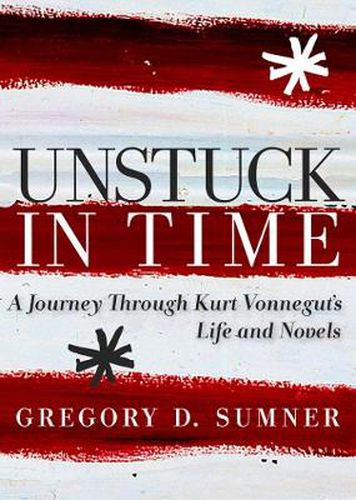Readings Newsletter
Become a Readings Member to make your shopping experience even easier.
Sign in or sign up for free!
You’re not far away from qualifying for FREE standard shipping within Australia
You’ve qualified for FREE standard shipping within Australia
The cart is loading…






In Unstuck in Time, Gregory Sumner guides us, with insight and passion, through a biography of fifteen of Kurtand Vonnegut’s best-known works–his fourteen novels starting with Player Pianoand (1952) all the way to an epilogueand on his last book, A Man Without a Country (2005)–to illustrate the quintessential American writer’s profoundand engagement with the “American Dream” in its various forms. Sumner gives us a poignant portrait of Vonnegut and his resistance to celebrating the traditional valuesand associated with the American Dream: grandiose ambition, unbridled material success, rugged individualism,and and “winners” over “losers.” Instead of a celebration of these values, we read and share Vonnegut’s outrage,and his brokenhearted empathy for those who struggle under the ethos of survival-of-the-fittest in the frontierand mentality–something he once memorably described as “an impossibly tough-minded experiment in loneliness.” Heroic and tragic, Vonnegut’s novels reflect the pain of his own life’s experiences, relieved by small acts ofand kindness, friendship, and love that exemplify another way of living, another sort of human utopia, anand alternative American Dream, and the reason we always return to his books.
$9.00 standard shipping within Australia
FREE standard shipping within Australia for orders over $100.00
Express & International shipping calculated at checkout
In Unstuck in Time, Gregory Sumner guides us, with insight and passion, through a biography of fifteen of Kurtand Vonnegut’s best-known works–his fourteen novels starting with Player Pianoand (1952) all the way to an epilogueand on his last book, A Man Without a Country (2005)–to illustrate the quintessential American writer’s profoundand engagement with the “American Dream” in its various forms. Sumner gives us a poignant portrait of Vonnegut and his resistance to celebrating the traditional valuesand associated with the American Dream: grandiose ambition, unbridled material success, rugged individualism,and and “winners” over “losers.” Instead of a celebration of these values, we read and share Vonnegut’s outrage,and his brokenhearted empathy for those who struggle under the ethos of survival-of-the-fittest in the frontierand mentality–something he once memorably described as “an impossibly tough-minded experiment in loneliness.” Heroic and tragic, Vonnegut’s novels reflect the pain of his own life’s experiences, relieved by small acts ofand kindness, friendship, and love that exemplify another way of living, another sort of human utopia, anand alternative American Dream, and the reason we always return to his books.